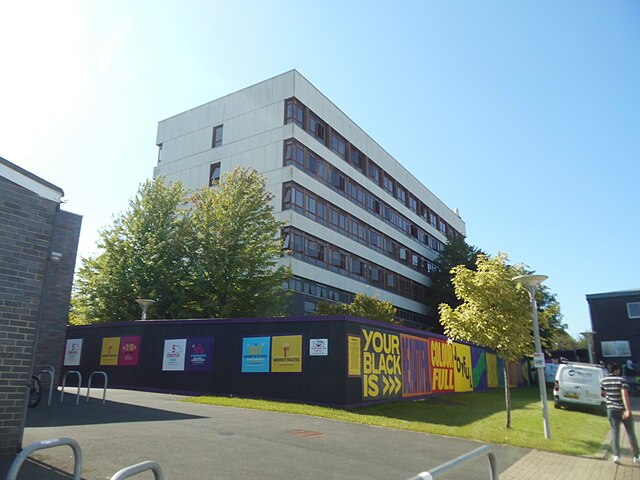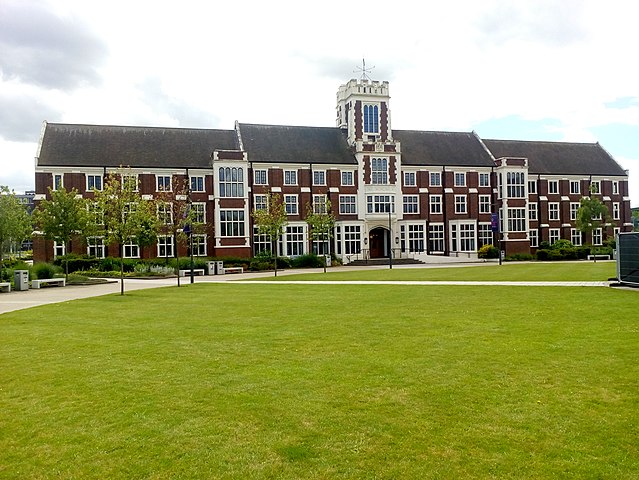
Thammasat University students interested in English language education, the United Kingdom, international relations, diplomacy, history, soft power, and related subjects may find it useful to participate in a free 24 January Zoom webinar on Beacons of Cultural Diplomacy or the Back Door into Britain? The English-Language School Industry in the United Kingdom.
The event, on Wednesday, 24 January at 7pm Bangkok time, is presented by the Institute of Advanced Studies (IAS), Loughborough University, London, the United Kingdom (UK).
The TU Library collection includes several books about different aspects of English language study in the UK.
Students are invited to register at this link:
https://us06web.zoom.us/webinar/register/WN_Ur_fky1gQPebiJy7hEnCKQ#/registration
The event webpage announces:
After the Second World War, commercial schools to teach English to visitors proliferated around the United Kingdom as part of Britain’s effort to sustain influence with foreign elites and as part of an overall cultural diplomacy campaign. Within the burgeoning sector of further education, their appearance also served to bolster the British economy as foreign students came to Britain and spent significant sums of money while being trained. Over time, however, British officials and members of the public became increasingly concerned that lax regulation of these institutions carried negative consequences. Initially, this involved general worry that the commercial language schools could undermine the quality of the British cultural “brand.” By the 1990s, however, this was joined with a more pointed alarm that such institutions represented a threat to national security by creating a pathway for foreign nationals to enter the country.
This paper will trace the growth of English language schools in Britain between the 1950s and the early 2000s to show how a post-imperial nation confronted the political tradeoffs of globalization. Whether speaking to the tensions of government-business relations, the pressures of migration, the priorities of national security, or the evolution of modern globalized education, the politics that surround the English-language school industry in Britain are pertinent around the world today.
The speaker will be Associate Professor Caroline Ritter, a historian of Modern Imperial Britain who teaches at Texas State University, the United States of America.

According to ICEF Monitor, a dedicated market intelligence resource for the international education industry,
New data shows that Covid-related travel restrictions enforced at various points in 2021 – especially during the Delta wave – meant that recovery for the UK’s English-language school sector did not materialise. Student numbers did improve over the course of the year, but looking at the whole period, UK ELT schools hosted 35.7% fewer students than in 2020, following the devastating drop of 83.6% in 2020. Only a tenth as many international students travelled to the UK in 2021 as in 2019, before the pandemic. The total number of students enrolled in English UK members’ courses in 2021 was just over 53,600.
Student weeks were also down significantly (-12.9%) to just over 462,000 after declining by 71.1% in 2020.
But the introduction to English UK’s Student Statistics Report 2022 attests to the resilience and determination of the sector:
“This new market information and lobbying ammunition is invaluable as we – with few reserves – battle residual Covid issues, capacity challenges and EU junior groups preferring to travel on ID cards. Together, we continue our fightback – with new weapons in our armoury.”
The report is based on more than 330 English UK members reporting their enrolments for 2021 and on past years’ statistics for comparison purposes. Because of the pandemic, members reported information on both face-to-face courses as well as courses that were forced to switch to a different mode of delivery. English UK notes that “While 41% of students studied face-to-face in 2021, almost one in three saw tuition delivery changed to a blended model.”
Most students enrolled in UK ELT in 2021 were from outside the EU (71%) and these students were also responsible for the lion’s share of weeks (76%).
The junior segment suffered the most
In pre-pandemic times, students under the age of 18 (Juniors) made up just over half of the overall ELT market for the UK. But the COVID crisis and related travel restrictions reversed this trend both in 2020 and 2021. Juniors composed only 9% of the student population in English UK schools last year – even less than the 23% proportion they represented in 2020. […]
Chinese students still represent the largest proportion of international students in state centres and accounted for 41.2% of student weeks in 2021. The next major markets for this sector are Romania (12.7% of student weeks), Poland (6.4%), Saudi Arabia (5.4%), and Spain (2.7%). Student weeks in those markets fell by between 18% and 44% in 2021.

A letter from one UK observer was posted online in 2022 stating:
The UK fails to value our English language sector and students –
Foreign students generate £29 billion yearly, ten times as much as they cost. They heavily subsidise UK university students’ fees which would need to be much higher without them. Overseas students bring revenue equal to £440 for every UK inhabitant as well as cultural and reputational benefits. All this is now at risk from Prime Minister Sunak’s “further restrictions”.
This official hostility to foreign students is nothing new and comes from all parties in various guises. According to a freedom of information request, in Bournemouth, Christchurch and Poole (BCP) only one language school out of twenty was awarded Council Business Tax Relief over the Covid-19 period. With a singular lack of even-handedness, retail, hospitality and leisure properties were all eligible, initially for 100% relief. Shops, restaurants, cafes, bars, pubs, hospitality or leisure businesses such as gyms, spas, casinos and hotels, empty buildings, charities, small businesses, local papers, nurseries and even public lavatories could apply. Language Schools were not entitled – with that one odd exception.
The insistence on requiring student visas costing students up to £499 for each course, discriminates by nationality and ability against potential students wishing to study here. Ridiculously, it blocks any who do not already have a good level of English, throwing away profitable opportunities to provide the English courses they require. Anyone on a tourist visa is strictly forbidden from attending any English language courses in the UK. Most medium- and long-term students are required to take out costly medical insurance so they will not be a burden on the NHS. This all needlessly pushes many students to competitor countries such as Canada, Australia, New Zealand, the USA and Ireland, and even France, Germany, Malta, Japan & China. It damages the UK language schools, our universities and economy. BCP has the most to lose nationally and we need our Council leaders and MPs to take notice. They need to lobby our Prime Minister to protect local businesses from further policies which might unnecessarily hobble our schools.
Students attending UK English language courses are more likely to attend UK universities. Consequently, it is vital that Sunak takes into consideration the economic importance of further and higher education as well as our language schools. He also needs to bear in mind the potential benefits to us all of keeping alive educational centres of excellence which reward us educationally, culturally and economically while supporting our failing balance of trade. Politically, in this period of worsening and increasingly dangerous international relations our ever more isolated country needs as much influence and soft power, and as many Anglophiles, as possible.

(All images courtesy of Wikimedia Commons)
